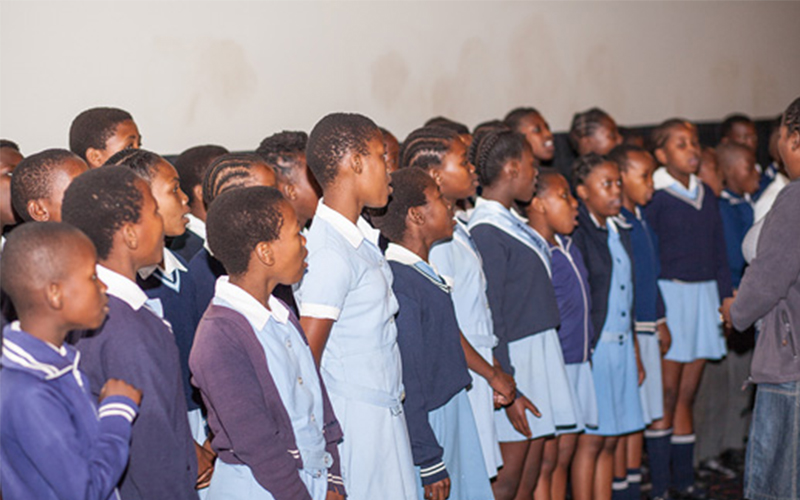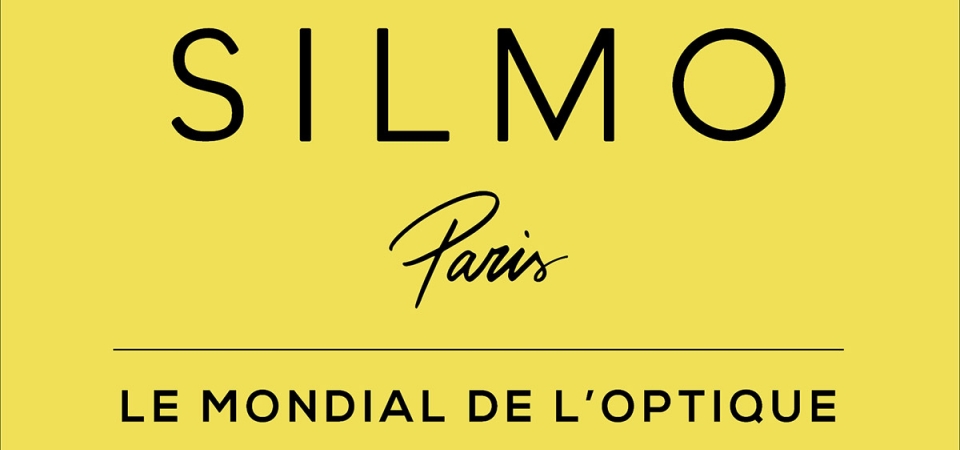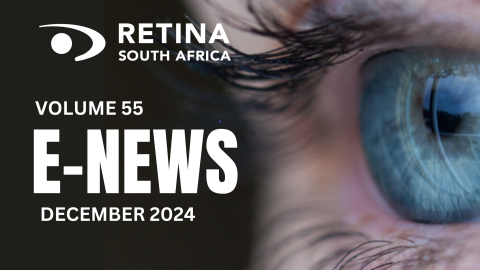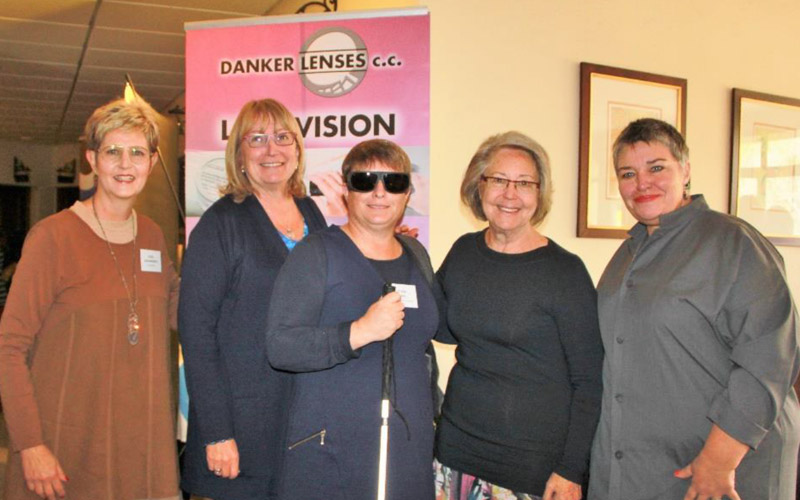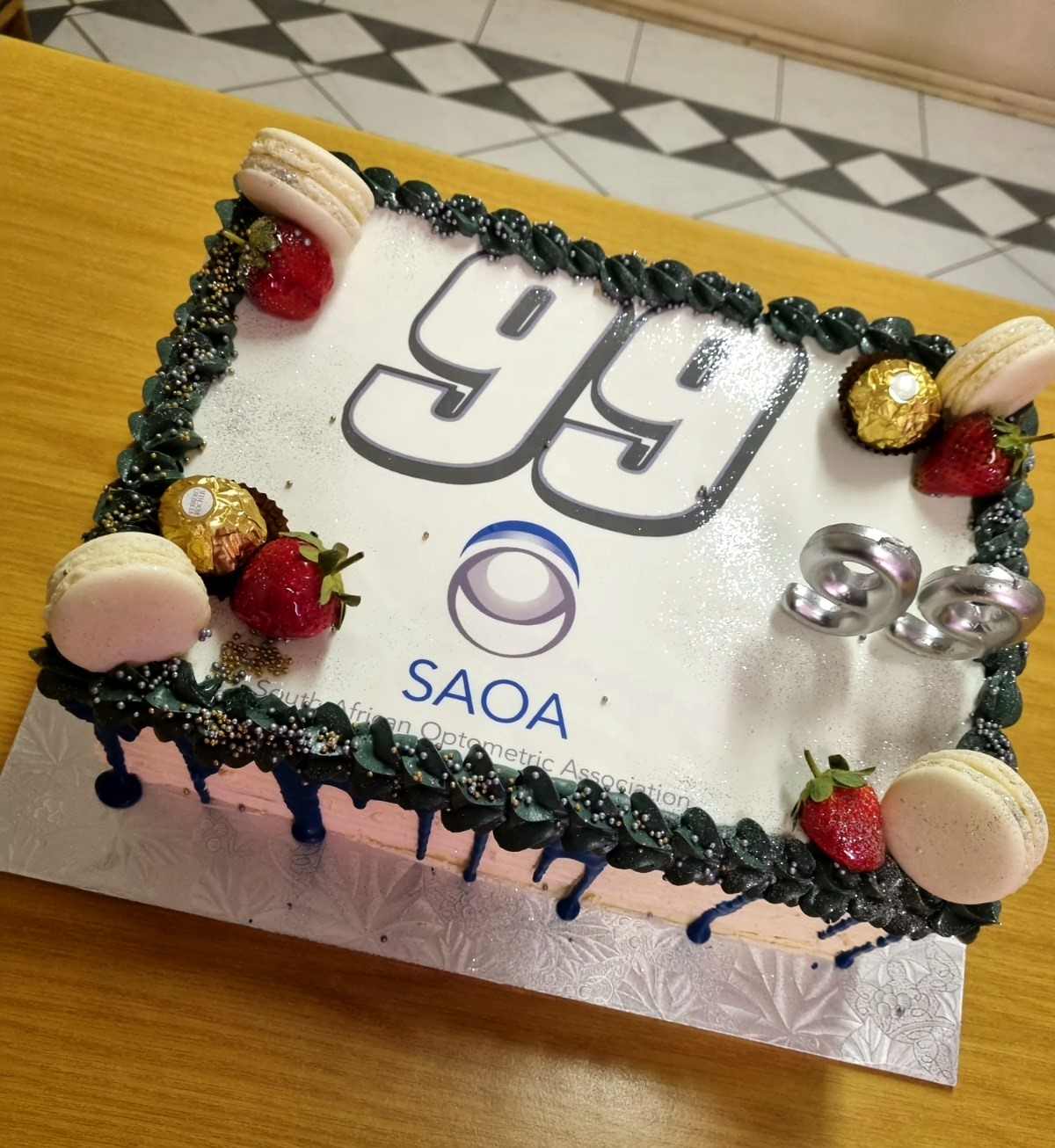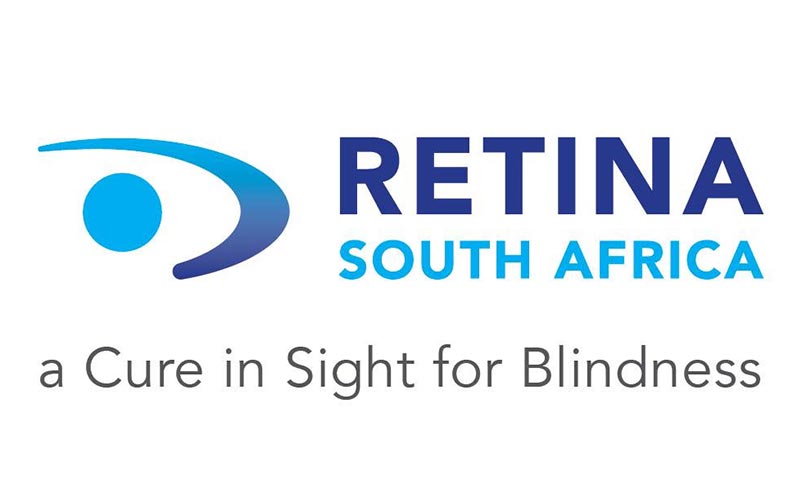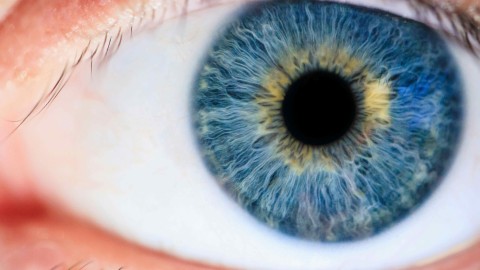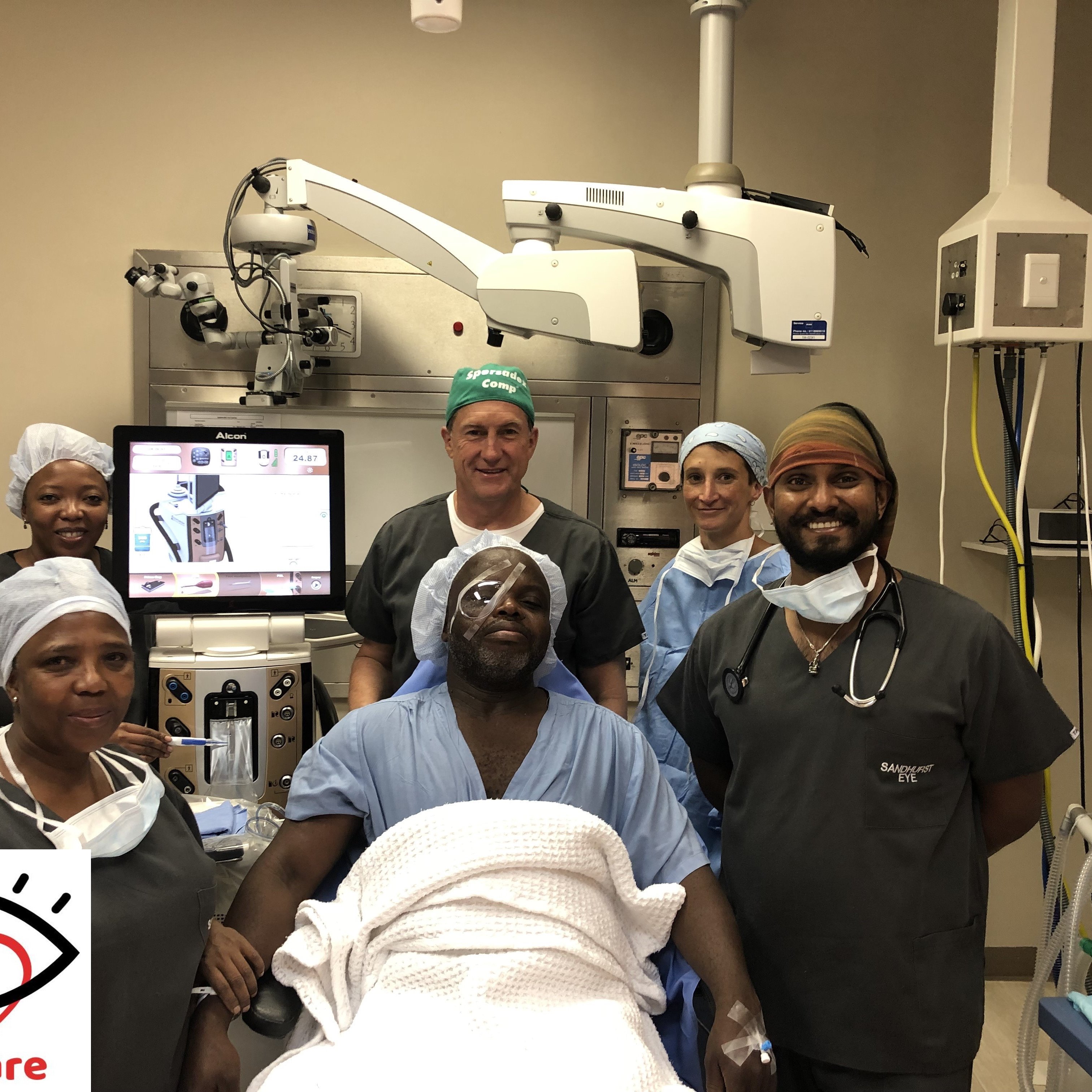Project will provide support to Government’s Integrated School Health Program
Ster Kinekor, Gateway Theatre of Shopping, Durban, 09 October 2014:
A young child sits in school, struggling to follow his lesson. The teacher’s notes on the blackboard are a blur, and the child, unable to see much at all, soon gives up his attempts to concentrate. It seems his poor eyesight will cause him to fail yet another subject – or perhaps, like others in his position, he will drop out of school all together.
Although a simple eye examination and pair of spectacles would correct his vision, the lack of access to eye care and spectacles has placed him at a severe disadvantage. His avoidable vision impairment has impeded his learning, which will affect him for the rest of his life. And he is not alone. It is estimated that 6 out of 10 children in South Africa with reduced vision can be corrected with glasses, yet only 20 percent of those children needing glasses have them. Considering that an estimated up to 80% of what children learn is assimilated through their eyes, any form of vision impairment can adversely affect a child’s educational growth.
In an effort to address this urgent need the Brien Holden Vision Institute, Ster-Kinekor Theatres’ CSI initiative, Vision Mission, the Provincial Departments of Health and Education and the South African Optometric Association (SAOA) have partnered to launch the South African School Eye Health Project.
Launched on World Sight Day, the School Eye Health Program aims to support the implementation of eye health services within the government’s national Integrated School Health Programme, by providing much-needed eye-care to thousands of disadvantaged learners in five of the country’s provinces – KwaZulu-Natal, Eastern Cape, Northern Cape, Mpumalanga and Gauteng.

Says Geraldine Engelman, CSI and projects manager of Ster-Kinekor Theatres: “During the three-year project, we plan to screen approximately 150 000 children, and provide free pairs of spectacles to at least 7 500 of those suffering from refractive error and low vision. We will also be launching various other initiatives including health promotions and educational messages to reach an even wider group of children and adults in the targeted provinces.”
“According to Professor Kovin Naidoo, the Global Programs Director for the Brien Holden Vision Institute, the School Eye Health Program addresses a desperate need. “Our country faces many social and economic challenges. In such a context of competing needs, it is critical that civil society, business and government work together to address children’s’ needs since they are one of the most vulnerable groups in our society especially in a climate of limited resources. If we hope to pull children out of poverty, eye care has to be considered as one of the areas that needs to be addressed to give them a fighting chance in life.
“The Brien Holden Vision Institute applauds the concern and caring that Ster Kinekor and SAOA have shown in supporting government’s Integrated School Health Program. This Public Private Partnership is a quality investment in the future of our children,” concluded the Professor.
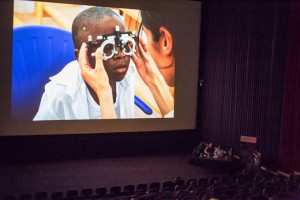
Working in association with various departments within each province, including the Departments of Health, Basic Education and Women, Children and People living with Disabilities, the objectives of the partnership will be to:
- Contribute resources and skills for refractive and low vision services within the district health system;
- Improve child eye health services through screening, examination and management of vision problems within the Integrated School Health Programme;
- Improve the integration of child eye health into the government’s broader development and disability agenda; and
- Improve the eye health seeking behaviour through appropriate health promotion messages and education.
Dr Nina Kriel, President of the SAOA, comments: “It is our wish to contribute to the elimination of avoidable vision impairment and blindness due to refractive error and low vision. Working with our partners in this initiative, it is our aim to render these much-needed services in public schools as a pilot programme initially, in partnership with the various provincial departments. Such an undertaking would not be possible without the valuable input from the private sector, and we are extremely grateful for their enthusiasm and contribution to the project.”
For Ster-Kinekor, sight is integral to appreciating the wonderful and magical world of cinema that is projected onto its big screens. “We are excited to be extending our Vision Mission programme into another area of eye health – the ISHP – and with the assistance and commitment from our dedicated partners, launch the South Africa School Eye Health Project. For us it is a privilege to be in a position to raise awareness about the importance of eye health, specifically around the prevention and treatment of avoidable blindness, and to give back to the communities in which we operate,” says Engelman.
The aims of Vision Mission are to contribute to the elimination of avoidable blindness in communities across South Africa, and to increase awareness of low vision as a major public health issue. The programme is also aligned to the World Health Organisation’s Universal eye health global action plan 2014-2019
“Being able to walk into a darkened cinema and watch in wonder as a fantastical story unfolds before your eyes, in a larger-than-life format, is a wonderful experience. All our customers who enjoy watching films at our cinemas can also make a difference, simply by making a contribution to the Vision Mission project,” said Engelman.
Customers can contribute to the School Eye Health Project either when booking online (www.sterkinekor.com) or at one of the self-service terminals in the cinema foyer. The public can opt in to make a donation, from as little as R2.50, to Vision Mission when prompted during the booking process. One click is all it takes to give someone with sight impairment the hope for a clearer vision of their future – and every donation makes a big difference.
![]()

